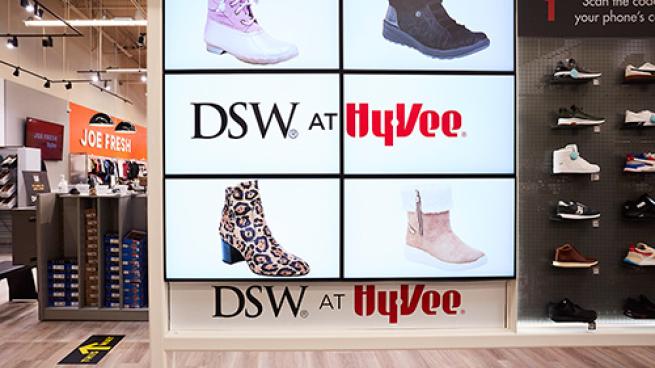Discover Top Shoe Brands and Styles at Pandabuy Shoe Store
Discover Top Shoe Brands and Styles at Pandabuy Shoe Store
Blog Article
Leading Trends in Shoes Ecommerce for 2024: What You Need to Know
As we come close to 2024, the landscape of shoe eCommerce is poised for substantial makeover, driven by ingenious fads that assure to improve consumer interactions and purchasing habits. Trick advancements such as AI customization, sustainability efforts, and the rise of social business are set to redefine just how brand names link with their target audiences.
Increase of AI Personalization
The surge of AI customization in the footwear eCommerce field is improving the means customers engage with brands. As stores utilize advanced formulas and machine understanding, they can now customize the buying experience to specific preferences, enhancing client complete satisfaction and loyalty. Via data analysis, AI systems recognize patterns in consumer actions, allowing brand names to provide individualized item suggestions, promotions, and content.
For example, vibrant item display screens readjust in real-time based upon individual interaction, ensuring that consumers are provided snappy that reverberate with their tastes. This level of personalization not just enhances the shopping experience but also drives conversion rates, as customers are a lot more likely to purchase products that align with their choices.
Additionally, AI-driven chatbots offer customized help, assisting consumers via the purchasing process and addressing inquiries in a timely way. This enhanced interaction promotes a deeper link in between brands and consumers. As eCommerce proceeds to evolve, the combination of AI personalization will certainly be critical in differentiating successful shoe merchants from their rivals, enabling them to develop unique, appealing experiences that reverberate with the modern-day consumer. Accepting this fad is vital for brand names aiming to flourish in the affordable landscape of 2024 and past.

Sustainability in Footwear
Stressing sustainability in footwear has ended up being a vital focus for brands as consumers significantly prioritize eco-friendly practices. Brands are now using recycled products, such as plastic and rubber, to produce fashionable and sturdy shoes.
Additionally, companies are executing ingenious production techniques that reduce carbon footprints. As an example, 3D printing and automated manufacturing processes reduce material waste and energy intake. Several brand names are dedicating to ethical labor techniques, ensuring reasonable earnings and risk-free working conditions for their workers, which resonates strongly with today's socially mindful customers.
To improve sustainability efforts, brand names are additionally concentrating on the idea of circularity. This includes take-back programs that urge clients to return old shoes for refurbishing or reusing, therefore prolonging product life and lowering garbage dump waste. As the demand for lasting footwear proceeds to climb, business that focus on green methods will likely gain an affordable edge in the industry, promoting brand name commitment and attracting brand-new customers devoted to sustainability.
Growth of Social Business
Maximizing the increase of social media sites platforms, brands are significantly incorporating social commerce into their sales methods, identifying its potential to engage customers straight. This trend has transformed just how customers discover and buy footwear, with systems like Instagram, TikTok, and Facebook evolving into important sales networks.
Brand names are leveraging shoppable messages, real-time streaming occasions, and influencer collaborations to develop immersive shopping experiences that resonate with their target audience. By using visually attractive material and genuine narration, footwear brand names can successfully display their items and cultivate a feeling of area amongst customers.
In addition, the usage of user-generated content has actually come to be essential in building trust and trustworthiness. When they see real individuals making use of and recommending the items, consumers are much more likely to purchase shoes. This organic form of marketing not just boosts brand name commitment but also drives conversions.
As the landscape remains to develop, shoe brand names must continue to be active, adapting to the newest social commerce functions while evaluating consumer actions to maximize their approaches. By accepting this growth, brands can capture the focus of a more comprehensive target market, inevitably driving sales and boosting consumer involvement in the affordable ecommerce market.
Digital Try-Ons and AR
Changing the online shopping experience, virtual try-ons and boosted truth (AR) innovations are ending up being vital tools for footwear brands in 2024. These innovations enable consumers to imagine how footwear will certainly look this contact form and fit before purchasing, resolving among one of the most significant discomfort points in on the internet shopping: unpredictability regarding fit and style.
By leveraging AR, customers can utilize their tools or smartphones to see a practical overlay of footwear on their feet. This immersive experience not only improves involvement however also substantially reduces return prices, as buyers are extra confident in their options. With the expanding elegance of AR modern technology, footwear brands can produce personalized experiences, permitting users to tailor colors, patterns, and designs in genuine time.
Furthermore, online try-ons are being incorporated into social media sites platforms, making it simpler for customers to share their shoes choices with close friends and seek opinions. As customers progressively expect interactive and customized purchasing experiences, shoe brands that adopt digital try-on technology will acquire an affordable side. Eventually, the combination of AR in ecommerce is not simply a pattern; it is ending up being a crucial element of the customer journey in the footwear market.
Registration Designs and Providers

These membership services commonly include tailored tests that analyze specific design choices, dimensions, and requires, making certain that customers obtain alternatives that reverberate with their preferences. Furthermore, lots of brands provide versatile terms, enabling customers to pause or cancel subscriptions easily, more boosting consumer contentment.
In addition, registration designs can help in reducing the decision-making concern connected with buying footwear, as customers exist with a selection that aligns with their choices. This technique not only fosters brand name commitment but also urges repeat acquisitions, as clients are most likely to involve with brands that provide ease and individualized service.
As ecommerce remains to advance, the combination of subscription solutions in shoe retail stands apart as a strategic step. It efficiently meets the needs of modern customers while driving sustained earnings growth for brand names in a competitive industry.
Final Thought
The evolving landscape of footwear eCommerce in 2024 underscores the value of web AI personalization, sustainability campaigns, and social commerce as essential trends forming consumer experiences. As brands significantly embrace innovative innovations such as digital try-ons and subscription versions, the emphasis on improving consumer engagement ends up being paramount. These advancements not just reflect altering customer preferences however also suggest a more comprehensive shift towards an extra interactive, responsible, and individualized purchasing environment within check this site out the shoes sector.
The rise of AI personalization in the footwear eCommerce field is reshaping the method customers involve with brand names. Through data analysis, AI systems recognize patterns in customer behavior, enabling brands to use tailored product recommendations, promotions, and material.
Highlighting sustainability in shoes has actually come to be an important emphasis for brand names as customers significantly prioritize environmentally friendly methods. Lots of brand names are devoting to moral labor techniques, making certain reasonable wages and safe working conditions for their employees, which resonates strongly with today's socially aware consumers.
As consumers increasingly expect customized and interactive buying experiences, shoe brands that adopt virtual try-on technology will certainly obtain an affordable side. pandabuy.
Report this page